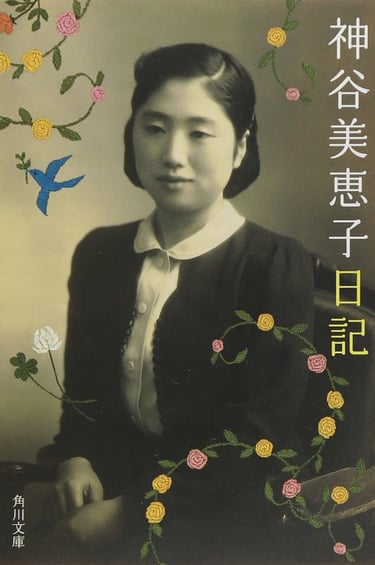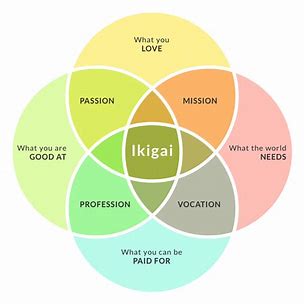Ikigai
The concept of Ikigai and its links to the medical profession.
Annabelle
7/17/20243 min read
I came across the concept of Ikigai when watching one of my favourite YouTubers, Faye Bate as she explores her motivation for her medical career as a junior doctor and influencer. Ikigai is believed to have origins from Zen Buddhism and the samurai code of Bushido. Of which these philosophies emphasise mindfulness, discipline, and a deep connection to one's inner self, all of which are essential components of Ikigai. It encourages individuals to reflect on their life choices and prioritise activities that bring them joy and satisfaction. This reflection is believed to contribute to a sense of purpose and well-being, which are crucial for personal growth. Ikigai, a Japanese term which translates to 'a reason for being' , represents a profound and culturally significant concept rooted in Japanese philosophy and lifestyle. Mieko Kamiya, a Japanese psychiatrist, is thought to be popularised after her book was released in 1966 ‘On the meaning of life’. The term itself is derived from 'iki,' meaning life, and 'gai,' meaning worth; historically, Ikigai has been an integral part of Japanese culture, offering a self help guide for achieving fulfilment and personal growth tracing all the way back to the Heian period of 794 to 1185 AD, where the notion of living a life of purpose was deeply embedded in the societal fabric. Unlike today where most people's motivation is the accumulation of wealth and are plagued by greed.
To me Ikigai is more than just a concept, it represents the importance of finding joy and purpose in everyday activities which, to its core, can make. It is traditionally understood as the intersection of four key elements: passion, mission, vocation, profession.




These elements create a comprehensive guide toward a balanced and meaningful life. By aligning these aspects, a person can achieve a harmonious state of being; I myself hope to find. The journey of an aspiring medical student is often filled with rigorous academic demands, long hours of study and intense work for the NHS. Integrating the principles of Ikigai can provide a meaningful framework for navigating these challenges and enlighten future struggles in my career. At its core, Ikigai involves the harmonious overlapping of what a person enjoys, what the world truly needs, what services can be paid for, and what we are good at. For an aspiring medical student - such as me- this means finding joy and purpose in the pursuit of medicine, a field that inherently combines personal passion with the mission of healthcare. Personally, paediatric medicine has become an interest of mine and can feed into my Ikigai.
Overall, the scientific principles of Ikigai have been linked to numerous benefits for mental health and overall life satisfaction. Some research indicates that individuals with a clear sense of purpose experience lower levels of stress. As body and mind are proven to be intrinsically linked, Ikigai can inadvertently enhance physical health, leading to longer life expectancy and improved quality of life.
Hopefully this has helped others with the understanding of Ikigai's historical and philosophical roots, so that we can all appreciate the significance of Ikigai as a guiding principle for achieving a fulfilled and meaningful existence and improving the world as it is today.
My Ikigai
Vocation: I hope with my love for science and writing, I can maintain a sense of enthusiasm even during the most challenging times.
Mission: The demand for dedicated healthcare professionals is ever-present in the NHS, and the impact of saving peoples lives offers a sense of completion, knowing that my efforts contribute to the greater good (many medical professionals are driven by a desire to help others and make a difference in people's lives which can be a powerful source of perseverance).
Profession: Medicine is one that offers both financial stability and personal satisfaction. While the journey through medical school is undoubtedly demanding, it ultimately leads to a career that is both rewarding and sustainable.
Passion: An earnest incentive in wanting to help those around me has propelled me forward into pursuing a rewarding career in medicine and ultimately my ikigai.


